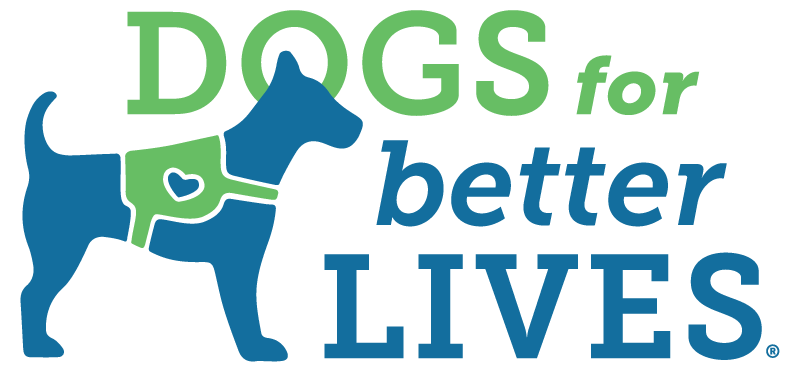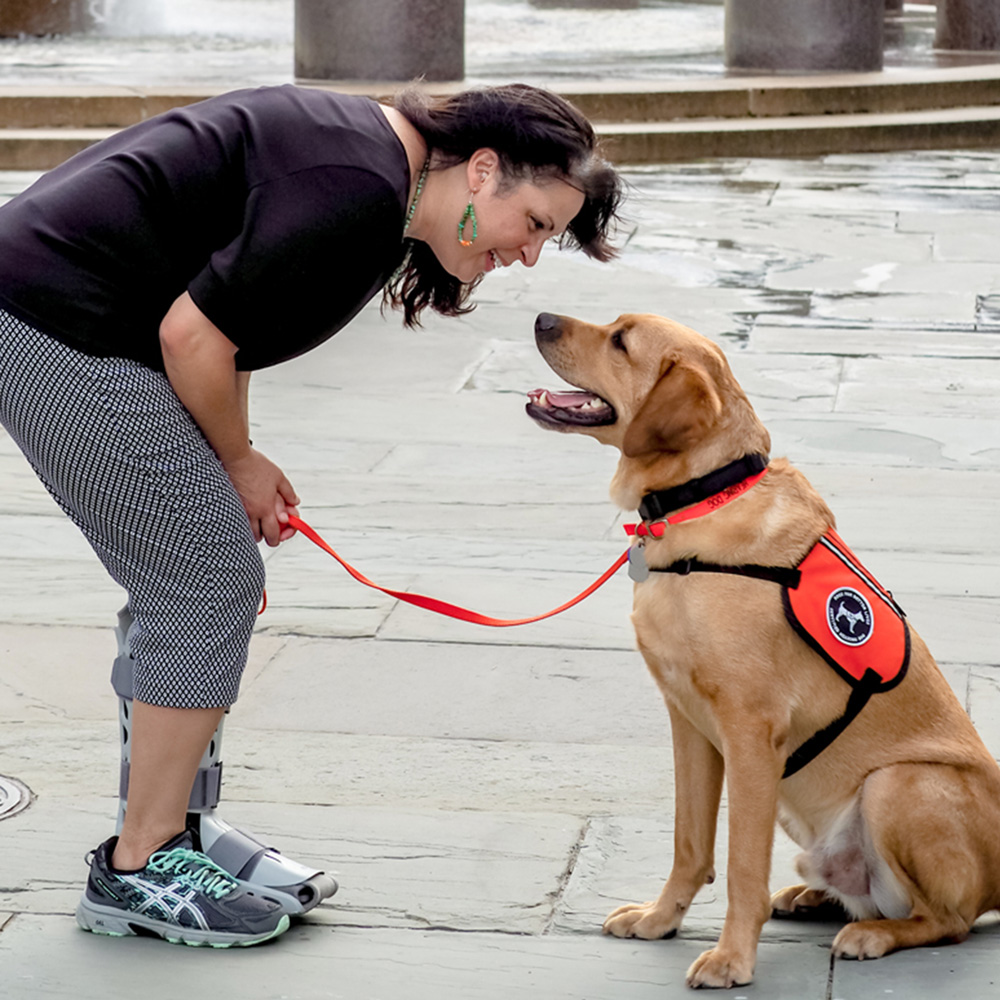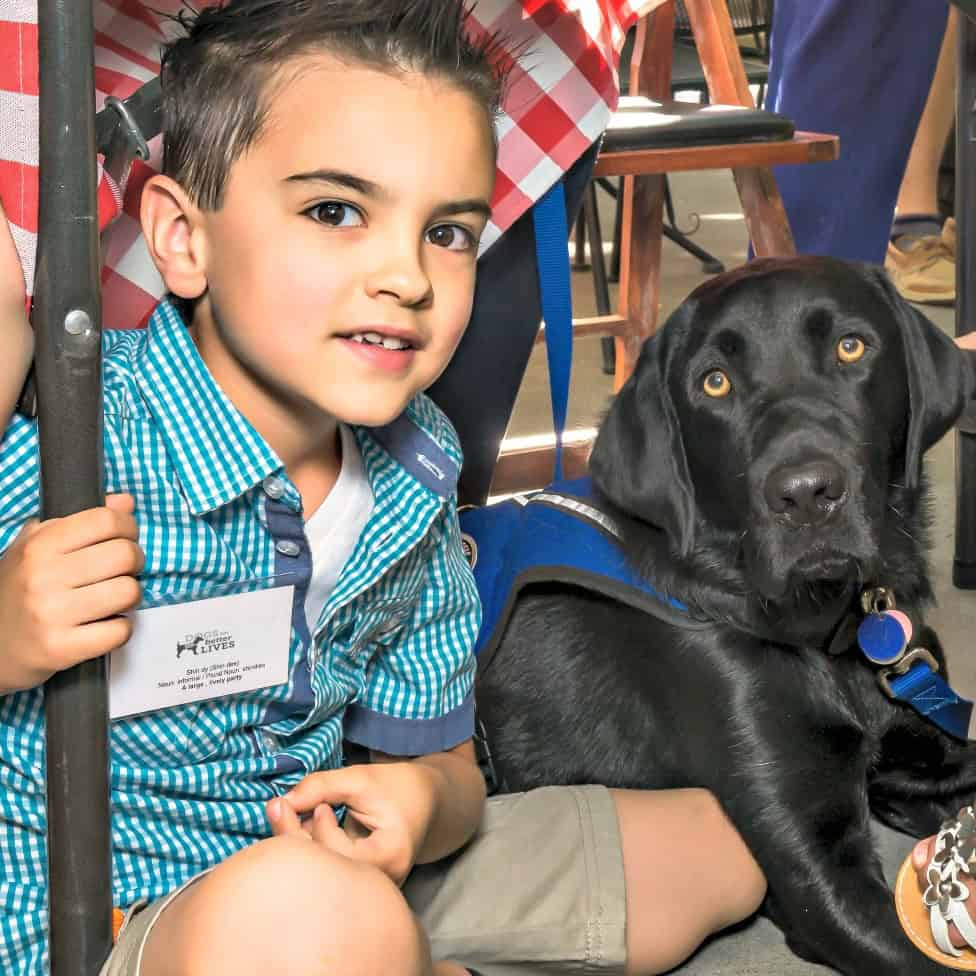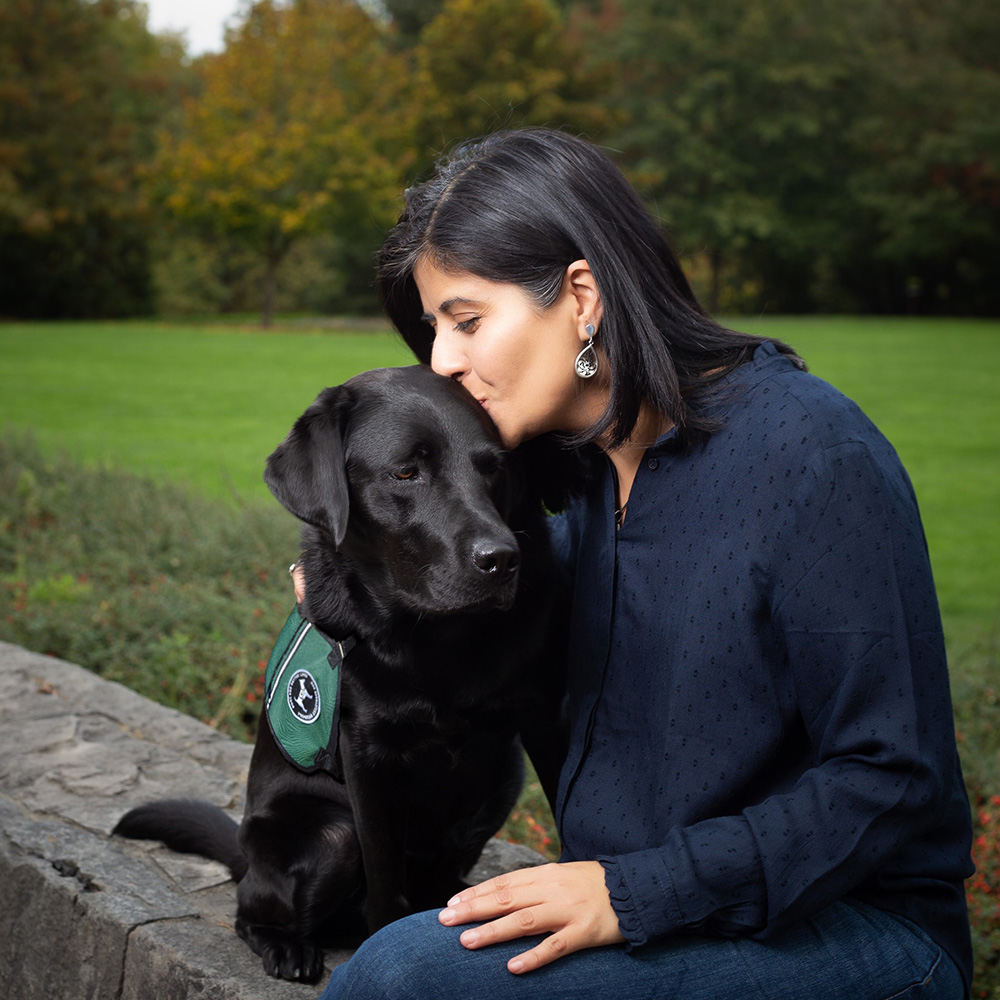It’s not unusual for Bryan Williams (MBA ’14) to have a dog or two in his office. As CEO of national nonprofit Dogs for Better Lives (DBL), he and his team place trained assistance dogs with people who need a canine companion to improve their quality of life.
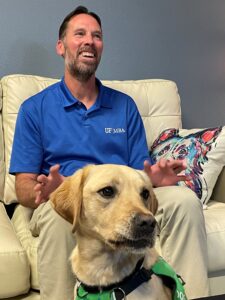
Bryan Williams sits with DBL Assistance Dog in Training, Annika
“DBL is the place I felt I could most contribute to a mission I truly believe in,” he says. “Dogs we train change people’s lives. They don’t just change the client’s life—they change the family’s life, the parent’s life. I heard a mom saying her child on the autism spectrum had not spoken a word, and the first word they spoke was their dog’s name. It makes it all worthwhile.”
Archie and Chowder are with him. He hopes Archie, with his “giant big head,” goes through an autism placement because “he’s just the gentlest giant I’ve ever been around.”
Superimposed over the tail wags and humanitarianism is the brass-tacks business acumen he gained while earning his master’s degree at the Warrington College of Business.
FOR THE LOVE OF BASEBALL
Though he always loved dogs, Williams’ first passion was baseball. After earning a scholarship to Jacksonville University to pitch, he earned a business degree, encouraged by his “very wise” parents to pursue this path but to have a backup plan.
After graduation, Williams got drafted by the Anaheim Angels and played a couple years in their minor league system. But when he came home and told his dad, “I’m not really feeling this anymore,” his dad advised him to go find another passion to pursue.
“I always thought baseball would be the thing I would do, and then going through my coursework and meeting my colleagues, I fell in love with the business aspect of things. I actually thought I would be an entrepreneur—start businesses and be rich. And that isn’t exactly what happened either,” he says.
As it turns out, nonprofits were his destiny. As marketing director for the National Kidney Foundation of Florida, he immediately knew this was the path he wanted to pursue, despite knowing little about what he was getting himself into.
“It was a lot of long hours, a lot of hard work putting on events, but something I felt I could be good at. I could take my background, my education, my entrepreneurial spirit and apply them to leading an organization,” he says. “From that point, I knew I wanted to be a nonprofit CEO. To be part of something special with people dedicating themselves to a mission that’s bigger than one person, to serve others.”
PATH TO THE C-SUITE
Williams knew he needed to gain some executive skills. Having been a Gator fan since he was 12, he researched UF’s executive business program and decided to earn his MBA.
“The conversation with my wife, Rachel, was, ‘I’ve gotta do this now. I don’t see any way we can make it work any later in life. And if you support it, I gotta get it done now,’” he recalls. “She said, ‘If this is the path you want, go for it.’”
His daughter was born in December 2011, and he started classes in January 2012.
Williams worked Monday through Friday as the development director at Halifax Humane Society in Daytona Beach, drove up to Gainesville on Friday night, attended class all day Saturday and then drove back Sunday. Then he did his homework and helped with a colicky baby. This was his schedule—every weekend for two years.
“Having a kid on the way really motivates you to push through. We had two kids during the program, and I got a lot of teasing for that. But having kids helps you understand what you’re capable of too.”
THE BUSINESS OF NONPROFITS
For a class project, he researched a national retail giant that geared its marketing to life changes that make you change your shopping habits, like getting married or having a baby. In real time, he applied business strategies to his organization: rescuing an animal is a life-changing event. If they changed their philosophy, they could develop business lines and become the one-stop shop for animal lovers in their community.
Williams met with his forward-thinking CEO and explained that through his work in the MBA program, he could bring some business ventures to the organization.
“Whether it was vet care, retail operations, food, vaccines—we built it into this life-changing moment. We transformed our adoption specialists into customer service representatives, who would point out our retail offerings and talk about our spay-neuter clinic. The organization itself went from heavily relying on fundraising—and struggling—to these multiple business lines that contributed to the bottom line, allowing them to operate with a surplus annually.”
BEYOND GROUP CHAT
Classes were invigorating, and he found the group work valuable. Surrounded by classmates whose employers like Lockheed and Disney paid for their schooling, Williams was the only nonprofit staff person there, and tuition came out of his own pocket. He liked the mix of industries and backgrounds, learning about his classmates and understanding how to work with them. He was able to see how they did things in their shops and how he could apply it to his work.
“Everything I was learning I took back and asked, ‘How can we apply this?’ Like first-in, first-out inventory. When you have medical supplies or retail goods, if you have dog food that has a shelf life. How are you managing that? How are you ordering?”
Group dynamics also taught Williams life lessons, especially that collaboration is the key to success. Working with groups has shown him that the mission is much greater than one organization or one person.
“You learn to lean on your teammates. Even as CEO, I can’t accomplish much of anything because it’s trainers, people working with the clients, doing the critical work. My best role is just to support them. We’re serving clients and people getting these dogs. The bond between two living things, ultimately, that’s what truly matters. That’s one of the lessons I learned, and who knows if that was even on the syllabus.”
DBL: TRANSFORMING LIVES THROUGH INDEPENDENCE
At DBL, Williams uses his business education to leverage the organization’s unusual, interesting and advantageous financial model. Thanks to its planned giving program that began in the 1980s, DBL’s endowment has grown large enough to fully fund its operations. That means every dollar contributed goes directly to investing and expanding programs and services. Staff has grown from 20 employees to 50, most of them in programs which directly benefit dogs and humans.
“I sat down with the board and said, “Listen, your endowment is throwing off X dollars that happens to be our management and fundraising costs. We can have an auditor come in, make this statement true and then we can go to the public and say 100% of your donations go to our programs and services.’ They weren’t doing that before I got here,” he says.
One of his first tasks at DBL was the “work from the beach in the Bahamas” initiative that moved everything away from paper and onto the cloud. COVID hit about three-quarters of the way through the transition, and staff didn’t miss a beat. The move helped DBL expand its staff and remain effective.
“You can’t train dogs from home that successfully, but other than that, everybody else in the organization can work remotely. Now we have 50 employees in 12 states, all because we moved this initiative forward in 2018, allowing us to continue to compete in the marketplace,” he says.
Above all, Williams sees his role as one of serving others. His sister and brother-in-law are teachers, and he came from a family that’s been taught that you give back.
“My way of giving back is to dedicate myself to nonprofit work. I found missions I’m passionate about, including here at DBL with dogs we train. It took me a lot of starting steps, so don’t give up if you haven’t found it yet. Eventually, either by falling into it like I did or through strategic exploration, keep at it until you find your passion. When you’ve put in 20 years in your career, you’re going to want those 20 years to be meaningful and worthwhile.”
